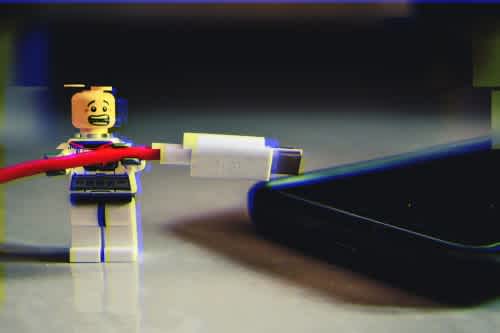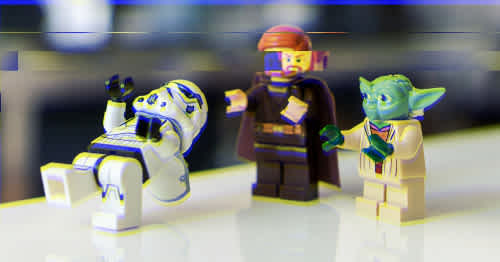In January 2020, I received an intriguing DM on Twitter:
“Hi! We’re organizing the Halfstack Conference in Tel Aviv next May. Would you be interested in talking about your work at our event?”
I stared at my screen for a solid 5 minutes.
I’m not exactly a professional software developer. I’m mostly self-taught and I never had a proper job in high tech. I was a musician for most of my life and now I combine both my passions together through live coding.
So this message completely puzzled me. I saw professional developers as super smart and knowledgeable people. And now, suddenly, they could be interested in hearing about my work? Really?!?
I know better than to close the door on opportunities solely out of fear, so even though I felt intimidated, I moved forward in my seat, laid my fingers on my keyboard, and started drafting a reply. They offered me the opportunity to perform a live coding set and give a talk on algorithmic music.
Then, COVID-19 hit us all in March. I thought it would be the end of the adventure… until an update from the conference organizer, Dylan, suggested otherwise. He took the initiative to put together a virtual version of the conference and asked the speakers if we’d still be up for giving a talk.
Of course, I said yes! He gave us the choice between speaking live or pre-record ourselves: I chose the pre-recorded option.
With all the months I had to prepare, you’d think I’d be pretty confident about my talk by then… Well, not exactly.
...
Looking back, here’s a reflection on things I could’ve done better:
1. Waiting until the last minute to choose the topic of my talk.
Some people work well under pressure. In my case, I’m a chronic last-minute addict. It always worked for me and I thought this time would be no different.
In a way, I was right. I did deliver my talk and I did understand my topic sufficiently well to communicate most of my ideas… But I feel I missed out on a great learning experience.
If I would’ve decided on my topic sooner, I could’ve chosen something I was passionate about but still required work and research on my part. Instead of wasting all this energy into finding a topic I was already comfortable with, I could’ve used that time to prepare: do some research, increase my knowledge, and discover new and exciting concepts.
2. I fooled myself into thinking I didn’t need practice.
Because of my career as a musician, I was sure I could handle the pressure of a public presentation… But playing music and speaking are very different things. I wasn’t used to verbally exposing my ideas. At all.
We were offered the help of an experienced speaker. I should’ve taken the opportunity but I didn’t. I was stressed out about nailing down my topic and didn’t want to admit I felt insecure. Plus, I thought if I could pre-record the talk, it would be easy for me… Oh boy.
Speaking is a profession in itself. People get good at it the same way anyone gets good at anything: practice.
Talking with Dylan the days following the conference, I told him about my lack of experience in public speaking. Right away, he replied: “Next time, I can support you with that if it’s useful for you! We could go over your talk together and I can give you some pointers.”
Now, this didn’t fall on deaf ears!
3. I relied too much on the fact I could record again and again
Nothing can replace the spontaneity of the first time. Because I knew I could try again, I became too perfectionist and my attempts to correct small mistakes (which probably no one would’ve noticed) quickly diverted into a complete lack of spontaneity.
Also, when you speak to people, you have feedback, interactions…
When recording, there’s none of that. In my case, the first few minutes of the recording would go well until thoughts would start popping up:
“Did I use the right word?”
“Did I sound silly?”
“How long have I been speaking for?”
No one likes to listen to a robot (or maybe some people do but I think they’re rare). People like to relate, to feel humanity behind the person speaking.
If I’d do it again, I’d prepare for my talk the same way I prepare for a live event: when it’s time, it’s time and I get one shot. Once I start, I have to finish, no matter what happens.
...
So… How did it go?
You’re probably thinking it went horribly wrong (I wouldn’t blame you!). Well, not exactly! Dylan and the Halfstack community were incredibly supportive. The most terrifying part was when my talk was broadcasted and I was watching myself from my room, terrified to read the comments!
But, all in all, it was a great first experience. Turns out, professional developers are not so intimidating at all! They’re fun, curious, and, especially at Halfstack, they enjoy the opportunity to not take themselves too seriously. My live coding set went great and performing for them was an absolute pleasure. I feel I’ve found an extended family!
Will I try my hand at public speaking again? Absolutely! But now, I know what I need to work on to get better. I’m taking a course on public speaking and I won’t hesitate to reach out to friends for feedback.
The next Halfstack Conference is planned to happen in October 2020 and I’m already set on my topic this time! It’s a bit ambitious but still not too far out of my skillset. My next step will probably be to hit up Dylan by email and say: “Hey, remember when you said you could help me out for my talk?”
...
Check out Mynah's live coding radio podcast, dedicated to live coding, live coders and algorithmic music.


